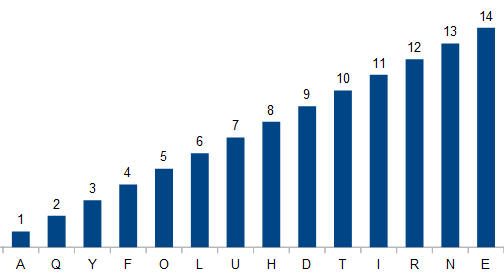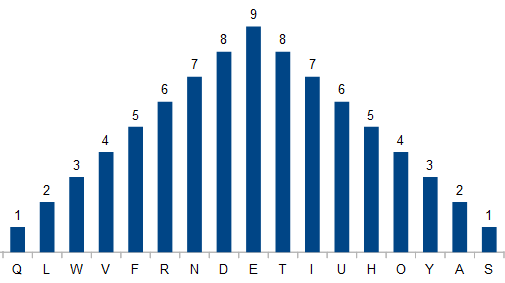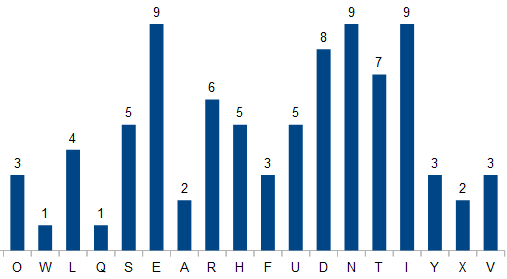What’s unusual about the number 313,340,350,000,000,000,499? Its English name, THREE HUNDRED THIRTEEN QUINTILLION THREE HUNDRED FORTY QUADRILLION THREE HUNDRED FIFTY TRILLION FOUR HUNDRED NINETY-NINE, contains these letter counts:

This makes the name a perfect “snowball,” in the language of wordplay enthusiasts. In exploring this phenomenon for the November 2012 issue of Word Ways, Eric Harshbarger and Mike Keith found hundreds of thousands of solutions among very large numbers, but the example above is “shockingly small compared to all other known SH [snowball histogram] numbers,” they write. “It seems very likely that this is the smallest SH number of any order, but a proof of this fact, even with computer assistance, seems difficult.”
Two other pretty findings from their article:
224,000,000,000,525,535, or TWO HUNDRED TWENTY-FOUR QUADRILLION FIVE HUNDRED TWENTY-FIVE THOUSAND FIVE HUNDRED THIRTY-FIVE, produces a “growing/melting” snowball:

And 520,636,000,000,757,000, or FIVE HUNDRED TWENTY QUADRILLION SIX HUNDRED THIRTY-SIX TRILLION SEVEN HUNDRED FIFTY-SEVEN THOUSAND, produces the first 18 digits of π:

“This idea can also be applied to arbitrary text, not just number names,” they write. “Can you find a sentence in Moby Dick or Pride and Prejudice whose letter distribution is a snowball or is interesting in some other way? Such possibilities are left for future consideration.”
(Eric Harshbarger and Mike Keith, “Number Names With a Snowball Letter Distribution,” Word Ways, November 2012.)
